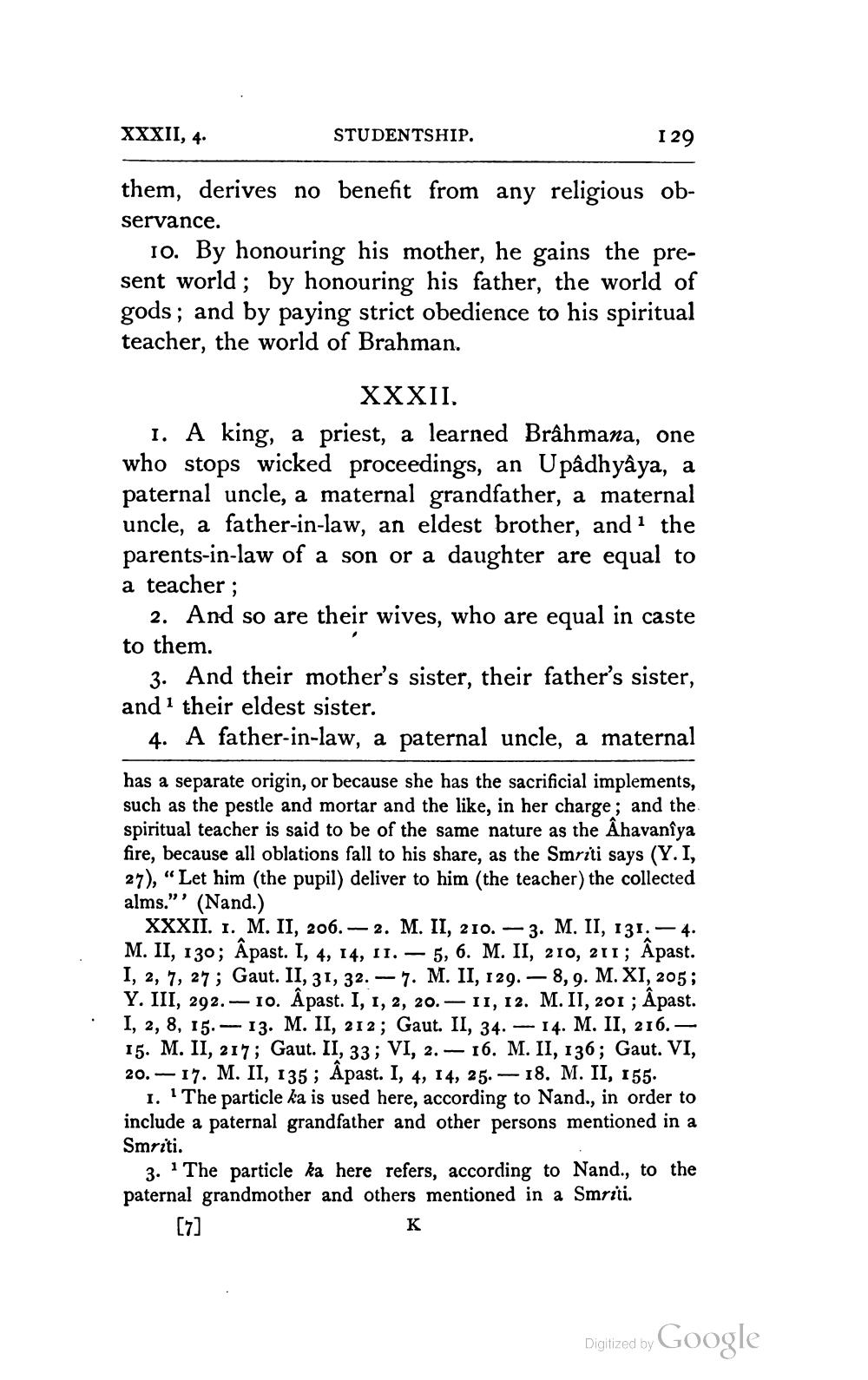________________
XXXII, 4.
STUDENTSHIP.
I 29
them, derives no benefit from any religious observance.
10. By honouring his mother, he gains the present world; by honouring his father, the world of gods; and by paying strict obedience to his spiritual teacher, the world of Brahman.
XXXII. 1. A king, a priest, a learned Brâhmana, one who stops wicked proceedings, an Upadhyâya, a paternal uncle, a maternal grandfather, a maternal uncle, a father-in-law, an eldest brother, and 1 the parents-in-law of a son or a daughter are equal to a teacher ;
2. And so are their wives, who are equal in caste to them.
3. And their mother's sister, their father's sister, and 1 their eldest sister.
4. A father-in-law, a paternal uncle, a maternal
has a separate origin, or because she has the sacrificial implements, such as the pestle and mortar and the like, in her charge; and the spiritual teacher is said to be of the same nature as the Ahavanîya fire, because all oblations fall to his share, as the Smriti says (Y. I, 27), “Let him (the pupil) deliver to him (the teacher) the collected alms.”' (Nand.)
XXXII. 1. M. II, 206. - 2. M. II, 210. — 3. M. II, 131. — 4. M. II, 130; Âpast. I, 4, 14, 11. - 5, 6. M. II, 210, 211; Âpast. I, 2, 7, 27; Gaut. II, 31, 32. - 7. M. II, 129. — 8, 9. M. XI, 205; Y. III, 292.-10. Apast. I, 1, 2, 20. — 11, 12. M. II, 201 ; Āpast. I, 2, 8, 15. - 13. M. II, 212; Gaut. II, 34. - 14. M. II, 216. — 15. M. II, 217; Gaut. II, 33; VI, 2. — 16. M. II, 136; Gaut. VI, 20. - 17. M. II, 135; Apast. I, 4, 14, 25. - 18. M. II, 155.
1. The particle ka is used here, according to Nand., in order to include a paternal grandfather and other persons mentioned in a Smriti.
3. The particle ka here refers, according to Nand., to the paternal grandmother and others mentioned in a Smriti.
[7]
Digitized by Google




